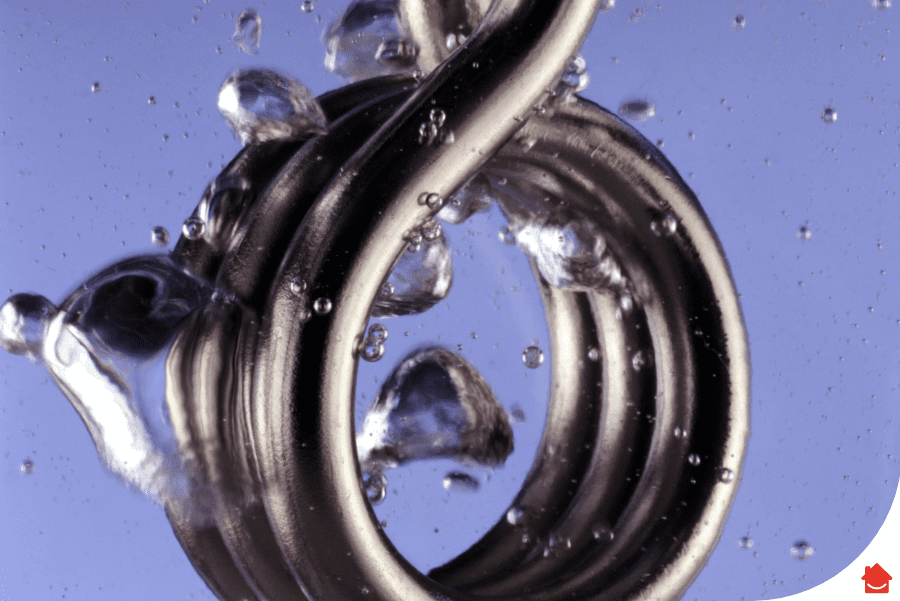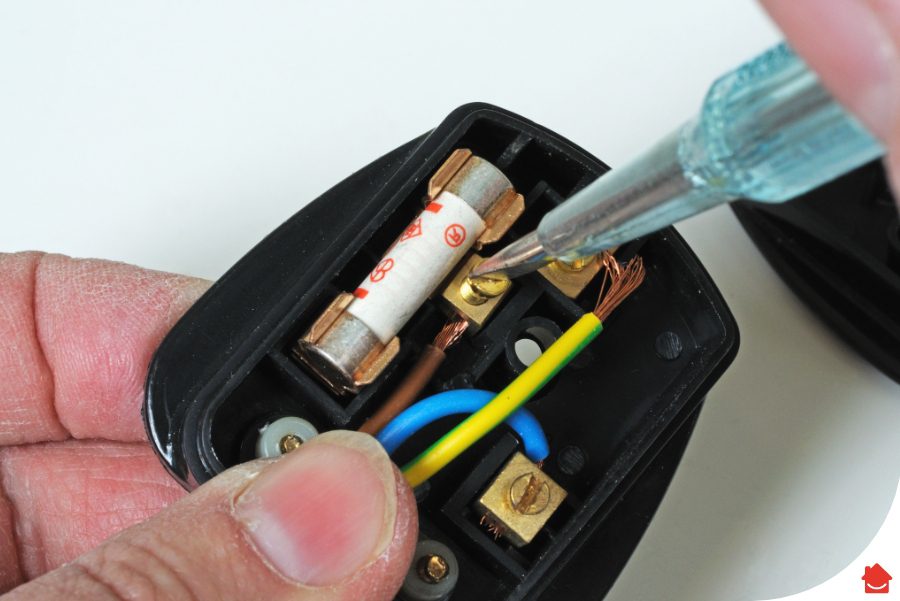If you’re a homeowner or landlord you have several different options concerning how hot water is supplied to your property. While many opt for a gas-fuelled combi boiler as their primary water heater, some choose renewables and a small minority choose an immersion heater fitted inside their hot water cylinder. Find out what an immersion heater is, how it works and how to use it in this guide.
What is an immersion heater?
An immersion heater is an electric water heater that’s fitted inside a domestic hot water cylinder to heat it up on demand.
Immersion heaters are powered by electricity, and are connected up to their own power supply through an electric cable. This means you can easily switch it on and off, or fit a timer so it comes on and switches off when you want.
Immersion heaters can either be used as your main hot water heater, or as a backup water heater for your gas boiler. In this case it’s completely separate from your boiler and radiators, which means that if your central heating fails, you will still be able to have hot water coming from your shower and taps. It’s a lifesaver in emergencies!
How does an immersion heater work?
Immersion heaters use electricity to heat water. They use an electric resistance heating element (it looks like a metal loop or coil like the one inside your kettle) to heat the water inside your hot water cylinder until it reaches the designated temperature.
Cold water enters your hot water cylinder at the foot of the tank, rises to the top as it’s heated by the element. The pressure that is created at the outlet of the tap is produced by the ‘head of water’ created by the height of the cold water tank in the roof space.
All immersion heaters have a thermostatic control, you can set your required temperature at the thermostatic and when the water temperature reaches it, the immersion heater automatically switches off. When the temperature drops below a certain temperature, the immersion heater switches back on again.
If you want to stop the water from heating during the most expensive peak electricity hours, you can set your timer to switch off then.
Insulate to keep your hot water hot
Immersion heaters are often fitted in new builds, so if you have a modern immersion hot water cylinder, it will automatically be well insulated and therefore keep your water hot for a decent amount of time. Otherwise, check your hot water cylinder insulation is the required thickness and upgrade if you need to.
While most immersion heaters use electricity from the mains supply, you could choose to connect yours to some solar panels on your roof, or other renewable energy sources. This can help to save on the higher costs of using an electric heater compared with a gas boiler, as well as the environmental benefits of using renewable energy.
How does a hot water cylinder work?
You can find out how a hot water cylinder works in great detail over at our dedicated article, but if that’s too long, here’s a quick summary:
A hot water cylinder is the place where your hot water is stored and heated before it goes to your taps and showers. There are two main ways the water in hot water cylinders is heated. In direct hot water cylinders, an immersion heater is fitted inside to heat up the water surrounding it, making the hot water cylinder act like that giant kettle we mentioned.
Indirect hot water cylinders need an external device (usually a gas boiler) to supply the heat via a heat exchanger inside the cylinder. This essentially does the job of the immersion heater. As we also mentioned before, it’s possible to have both a heat exchanger coming from the boiler and an immersion heater coil inside your hot water cylinder, meaning you have two potential methods of heating the water inside.
Immersion heater – how to use?
This totally depends on how you and your family (or your property’s tenants if you’re a landlord) use hot water in the home, and if an immersion heater is your only source of heat, you must use it wisely to make sure it doesn’t become too expensive.
If your household needs a constant supply of hot water at all times, for example, you may end up leaving the heater on constantly. This is a fast route to sky-high electricity bills – it’s really not an efficient or frugal way to use an immersion heater, as the immersion heater would constantly be switching on to keep your hot water hot.
Do you use hot water at predictable times of the day?
If you only need hot water at predictable times of the day – for a couple of hours in the morning and a few hours at night for example, you have a time-of-use tariff on your electricity (such as Economy 7). You can set a timer so that your immersion heater only switches on during cheaper off-peak hours.
‘Predictable’ is the key word here. You need to know exactly when you need hot water because immersion heaters need you to pre-plan if you don’t have them on all the time. Don’t want to wait for the entire tank to heat up before you take an impromptu 5-minute shower? You’re better off with a gas-fuelled combi boiler.
We hope you understand immersion heaters better
Whatever the source of your heat, we can repair it in the event of faults or breakdowns and help keep you covered with boiler cover and heating breakdown insurance in the event of any household emergencies. If you prefer a boiler over an immersion heater, we’re working with BOXT who can install your new boiler as soon as the very next day if you order before 4pm*.
FAQs
Why do I have an immersion heater and a boiler?
Lucky you! This means that if your boiler develops a fault or breaks down, your immersion heater can pick up the slack and provide your household with hot water.
What is the difference between a boiler and an immersion heater?
Most boilers are supplied with natural gas which you burn to heat the hot water you need for your showers and taps.
Is it better to leave immersion heater on?
If you have an unlimited supply of money to burn, yes. Because an immersion heater switches on every time the water drops below a preset temperature, your electricity bill will be pretty high if you leave it on constantly. Make sure your hot water cylinder is well insulated and it will keep your water hot for longer.
*Subject to engineer availability




